#guy deghy
Explore tagged Tumblr posts
Text

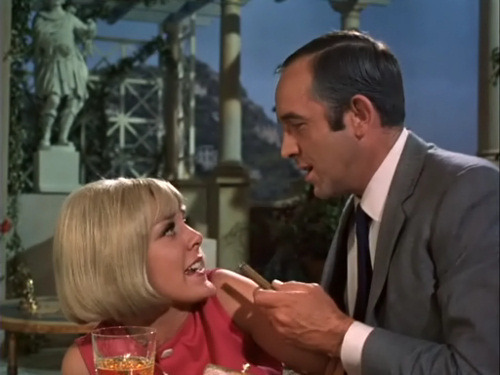

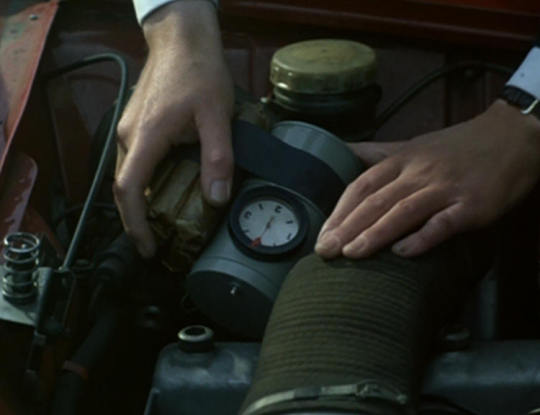
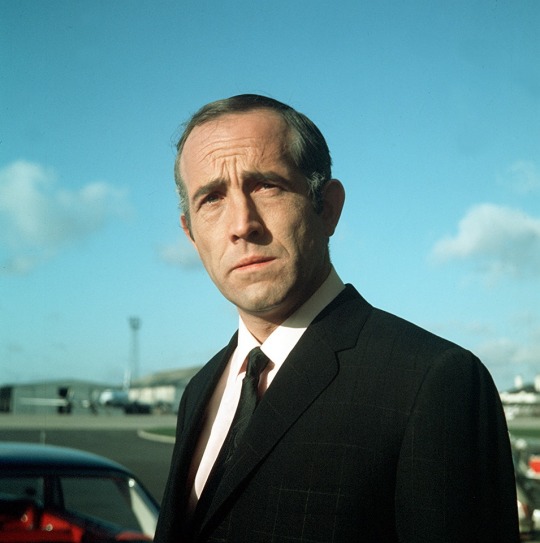


The Saint: Vendetta for the Saint - Part 1 (6.15, ITC, 1969)
"Want some advice? Go easy."
"And mine to you is pull out - before I start breaking his world up."
"What?"
"You heard."
"Dear man, have you any idea what you're taking on?"
"No, but I'll pick it up as I go along."
"You won't get six feet. Well, maybe: laid out in your best suit."
#the saint#vendetta for the saint#itc#1969#leslie charteris#jim o'connolly#john kruse#harry w. junkin#roger moore#ian hendry#rosemary dexter#aimi macdonald#george pastell#marie burke#fulton mackay#peter kristof#peter madden#guy deghy#charles houston#edward evans#malya nappi#eileen way#ooh we're really in the final stretch now. 1969! the show started in 1962‚ it had occupied most of the 60s by this point (a tumultuous and#culturally unique decade). here we hit the second two parter‚ coming quick after the first‚ but a very different fish: where the fiction#makers chose to go bigger‚ zanier‚ weirder (all laser beams and cartoonish villains‚ eccentric side characters and many#explosions) this second movie length outing instead takes a very standard Saint formula (he is sort of witness to a murder and so decides#to bring down the killer and mafia too) and just does it.. more thoroughly‚ i guess? takes advantage of the longer running time and what#was presumably a higher budget to simply add more spectacle to a solid Saint adventure. it works! this is pretty good! fancy location work#(at an actual location! the team shot extensively in Malta for this 2 parter)‚ a helicopter‚ car chases and gun battles. it's the series#finally realising what it's always wanted to be thanks to a last minute splurge of the coffers. pretty good stuff
22 notes
·
View notes
Text

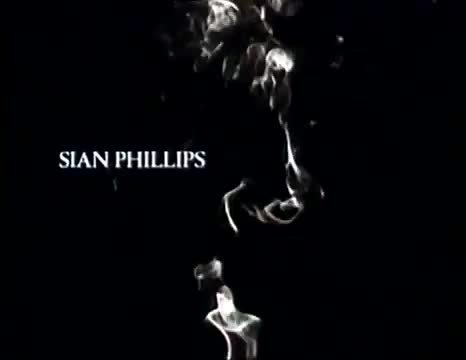
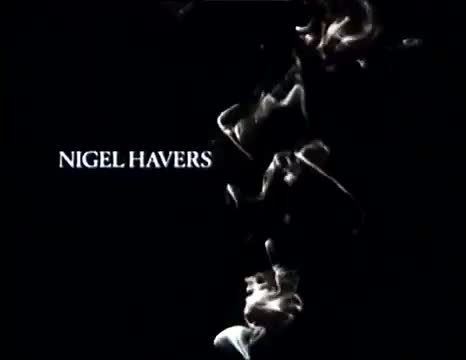

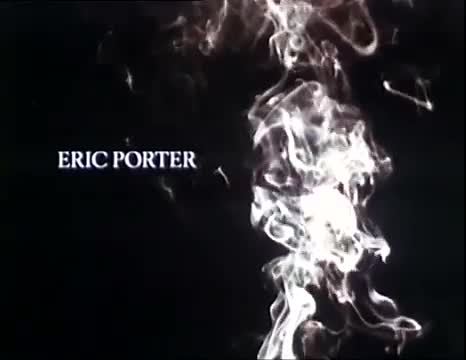


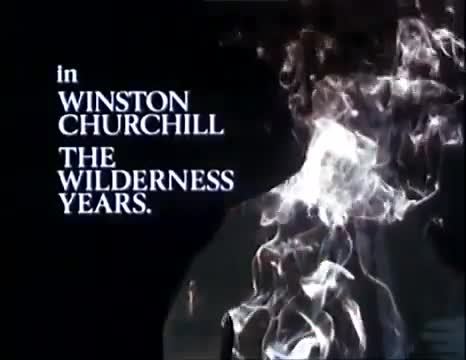

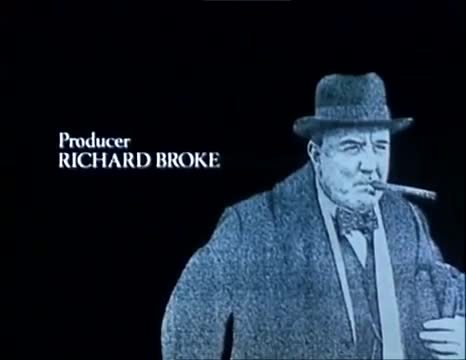

Winston Churchill: The Wilderness Years - ITV - September 6, 1981 - October 25, 1981
Drama (8 Episodes)
Running Time: 60 minutes
Stars:
Robert Hardy as Winston Churchill
Siân Phillips as Clementine Churchill
Nigel Havers as Randolph Churchill
Tim Pigott-Smith as Brendan Bracken
David Swift as Professor Lindemann
Sherrie Hewson as Mrs. Pearman
Moray Watson as Major Desmond Morton
Paul Freeman as Ralph Wigram
Frank Middlemass as Lord Derby
Sam Wanamaker as Bernard Baruch
Peter Barkworth as Stanley Baldwin
Eric Porter as Neville Chamberlain
Edward Woodward as Sir Samuel Hoare
Peter Vaughan as Sir Thomas Inskip
Robert James as Ramsay MacDonald
Tony Mathews as Anthony Eden
Ian Collier as Harold Macmillan
Marcella Markham as Nancy Astor
Walter Gotell as Lord Swinton
Richard Murdoch as Lord Halifax
Clive Swift as Sir Horace Wilson
Phil Brown as Lord Beaverbrook
Diane Fletcher as Ava Wigram
Geoffrey Toone as Sir Louis Kershaw
Norman Jones as Clement Attlee
Geoffrey Chater as Lord Hailsham
Stratford Johns as Lord Rothermere
Norman Bird as Sir Maurice Hankey
Roger Bizley as Ernst Hanfstaengl
James Cossins as Lord Lothian
Guy Deghy as King George V
Stephen Elliott as William Randolph Hearst
Günter Meisner as Adolf Hitler
Frederick Jaeger as Joachim von Ribbentrop
David Langton as Lord Londonderry
Preston Lockwood as Austen Chamberlain
David Markham as the Duke of Marlborough
Richard Marner as Ewald von Kleist-Schmenzin
Llewellyn Rees as Lord Salisbury
Terence Rigby as Thomas Barlow
Margaret Courtenay as Maxine Elliott
Merrie Lynn Ross as Marion Davies
Nigel Stock as Admiral Domvile
#Winston Churchill: The Wilderness Years#TV#ITV#Drama#1981#1980's#Robert Hardy#Sian Phillips#Nigel Havers#Peter Barkworth#Eric Porter#Sam Wannamaker#Edward Woodward
3 notes
·
View notes
Photo










Chub actors on British TV in the 1960s
Guy Deghy. Guy Deghy was born in 1912 in Austria-Hungary. He found a home acting in TV dramas, often playing Germans or Russian villains. The 1960s were particularly good to him as the Spy and Crime genres exploded on British TV kept him busy. He appeared in The Saint 4 times, Danger Man and Secret Agent twice, Espionage, The Avengers and The Champions, Department S as well as others.
41 notes
·
View notes
Photo


The Constant Husband(1955)
1 note
·
View note
Link
For just $3.99 Against the Wind Released on February 11, 1948: Directed by: Charles Crichton Written by: J. Elder WIlls with screenplay by Michael Pertwee, T.E.B. Clark and Paul Vincent Carroll The Actors: Robert Beatty Father Eliott Philip, Simone Signoret Mechle, Jack Warner Uncle Max, Gordon Jackson Johnny Duncan, Paul Dupuis Jacques Picquart, Gisele Preville Julie, John Slater Emile Meyer, Peter Illing Andrew, James Robertson Justice Professor Ackerman, Sybille Binder Florence Malou, Helene Hansen Marie Berlot, Gilbert Davis Commandant, Andrew Blackett Frankie, Arthur Lawrence Verreker, Eugene Deckers Marcel Van Hecke, Leo de Pokorny Balthasar, Rory MacDermot Carey, Kenneth Villiers Lewis, Kenneth Hyde Captain Parker, Olaf Olsen German officer, Philo Hauser Joseph, Martin Bradley Captain Rich, Sheila Carty Bridie Donnelly, Margot Lassner Madame Meyer, Guy Deghy German Sergeant Major, Jean Pierre Hambye Blondel, George Kersen Flour, Duncan Lewis Sergeant, Robert Wyndham doctor, Andre Morell Abbot Runtime: 1h 36m *** This item will be supplied on a quality disc and will be sent in a sleeve that is designed for posting CD's DVDs *** This item will be sent by 1st class post for quick delivery. Should you not receive your item within 12 working days of making payment, please contact us as it is unusual for any item to take this long to be delivered. Note: All my products are either my own work, licensed to me directly or supplied to me under a GPL/GNU License. No Trademarks, copyrights or rules have been violated by this item. This product complies withs rules on compilations, international media and downloadable media. All items are supplied on CD or DVD.
0 notes
Photo

_
_
_
May 1, 1988
“Doc” Chamberlain and the Wallenberg challenge
_
At the end of the World War Two in 1945, 100,000 people destined to die were still alive thanks to the efforts of one man. In six short months this man achieved a miracle. By a blend of courage, audacity and ingenuity, he was able to save the lives of tens of thousands of Hungarian Jews who had been earmarked for Nazi concentration camps and certain death. Then he disappeared.
This man was Raoul Wallenberg. Until recently his name meant nothing around the world and even today few people have heard of his bravery. But this week a new two-part mini-series on TV, starring Richard Chamberlain, brings to light an extraordinary story. The chance to play Wallenberg was sought avidly by Chamberlain.
As the war progressed Raoul became increasingly alarmed about the persecution of the Jews. At the time the full horror of Nazi policy was not widely known. Rumours and dreadful stories were seeping out of Germany, but the implications were so terrible that many people could not take them seriously. They couldn’t believe that even Hitler would be mad enough to try an exterminate an entire race. However, Raoul Wallenberg was prepared to believe it. In 1944, Wallenberg was given instant diplomatic status by Sweden and dispatched to the Swedish Legion in Budapest with instructions to do whatever he considered necessary to save lives. It was a delicate situation to be launched into. Wallenberg’s mission brough him into direct conflict with the notorious Adolf Eichmann who had already despatched 400,000 Hungarian Jews and was planning to rid himself as quickly as possible of the 230,000 still living in Budapest…
There’s one other person who rubs his hands with glee when Richard Chamberlain chooses a new part. His travel agent. Foreign parts are the ones Chamberlain likes best, and for the past few years his feet have hardly touched the ground in the homes he keeps in Los Angeles, New York and Hawaii.
He has worked in Spain, Italy, Britain, Austrailia, Japan, Canad, Greenland, Yugoslavia and South Africa and holidayed in Greece, North Africa and South America.
He’s filming in Zimbabwe at the moment on a remake of King Solomon’s Mine, and when he comes ‘home’ to California, he’ll go straight to Oregon to start work on a western mini-series. After that he guarantees his itchy feet and tireless travel agent will be sending him off to another far-flung location.
Since last summer, when he started research in New York and Yugoslavia on Wallenberg, Chamberlain has travelled non-stop. It can be a lonely life -not the most gregarious type, he doesn’t socialise night and day with his co-stars- but he has it all worked out to a fine art.
“Because I travel and live in hotels so much, I’ve figured out a way to turn my room into a gym,” he says. “I do pull-ups on the door, lift chairs, and take an exercise mat with me. It’s easy to eat as if you were at home -fruit, vegetables, rice. And everywhere I go I collect things for my homes: paintings, furniture, antiques, sculpture. Sometimes, like the time I was making the Shogun series in Japan, the country and its culture take over. I got back to Los Angeles, tore my house apart and turned it into a Japanese-style house with everything I’d brought back.” It took him so long to do, he had to rent the house next door to live in while work went on at his house.
His fame as television heart-throb Dr Kildare still follows him around the world however hard he tries to shake it off and, 23 years after the series was first seen, it’s now being re-run on British television. Chamberlain cites six weeks in Peru in 1982 as the only time he has been able to enjoy real anonymity. “A bunch of us, about 20 people mostly outside showbusiness, stayed overnight in monasteries and real out-of-the-way places. I was able to enjoy immediately the kind of person-to-person contact that takes longer to establish when you’ve got to get past my public identity.” Only once, in Lima, was he bothered by a photographer chasing him around.
You get the feeling he could do with more holidays like that, for he is polite, shy and earnest, an intensely private man who still finds it difficult living in the public spotlight. Born to a middle-class family in Los Angeles, he was something of a loner and a poor student -art was the only subject he was interested in- and at 16 he was voted the most reserved, courteous and sophisticated person in class. His parents thought he would join the family manufacturing business, like his older brother, Bill. Instead he became an artist and sculptor -his work sold well- and then turned to acting, a decision that surprised everyone, as his only interest in drama had been a brief appearance in a school play.
The Raoul Wallenberg story is one that has fascinated Chamberlain for a long time. An actor who has planned his career as much for challenge and variety as the travel opportunities it offers, he started agitating for the role four years ago. “Sometimes it seems that anything I really want takes three years to come my way,” he said, once he knew he had the part. “I waited that long to get John Blackthorne in Shogun and almost as long for my role in The Thorn Birds.”
This year marks the 40th anniversary of Wallenberg’s disappearance, and Chamberlain says his wildest dream is that the mini-series will provide some sort of answer to the mystery. “My goal is to help influence public opinion, to apply as much diplomatic pressure as possible to find out if Wallenberg is still alive.”
Most of Chamberlain’s TV roles in recent years -like Wallenberg- have been ones that have stretched him. There was Dr. Cook in the 1984 TV movie Cook and Peary: The Race to the Pole, a man who was obsessed with his desire to become first to reach the North Pole; the Elizabethian sea captain who becomes the legendary samurai warrior in Shogun, the complex Father Ralph de Bricassart, torn between his religion and his love for Maggie Cleary, in The Thorn Birds.
Now, Wallenberg -a role well worth the wait. He smiles at his nickname -“king of the mini-series”- but such work has earned him three Emmy nominations in the past nine years. He is proud of that track record -even if he has yet to win. He did allow himself to get excited about his award chance for The Thorn Birds but was beaten by Tommy Lee Jones in The Executioner’s Song.
A confirmed bachelor, he is the first to agree that his work is the most important thing in his life. His mother worries about him being lonely -his father died recently- but he claims it isn’t a problem. “I have a lot of wonderful friends. This is a very heavily populated time in my life.”
“I’m easily amused. I like to go to the movies and to the theatre. I like to spend time with friends. I like to have a few people over for dinner. I like to go out to dinner, to go camping and I love to travel.”
Wallenberg involved him so deeply it took him a long time to recover. He still talks about the chilling research he was involved with.
“In New York I met a woman who, as a child, was literally snatched from a death march by Wallenberg. Her story was one of the most harrowing things I’ve ever heard.”
“If I can play people like Wallenberg on television, I don’t feel anything is missing from my life. I don’t need anything else.”
Wallenberg: A Hero’s Story
Directed by
Lamont Johnson
An Emmy Award-winning drama about Raoul Wallenberg, one of the most exemplary individuals of the twentieth century.
Wallenberg was born into the wealthiest family in Sweden. He was an aristocrat and a Lutheran. His country had remained neutral throughout World War II, and the fighting would be over within a year. Yet he was willing to leave everything behind and go to the storm center of war-torn Europe on a dangerous and purely humanitarian mission to rescue Hungary’s besieged Jews. He courageously — often individually — confronted the last gasp of Nazi terror.
He is credited with saving nearly 100,000 lives, one-eighth of Hungary’s Jewish community, more people than were rescued by any other individual or institution in Europe. He demonstrated a boundless talent for compassion.
Richard Chamberlain stars as Wallenberg. Others in the outstanding international cast are Bibi Andersson, Alice Krige, Kenneth Colley, Melanie Mayron, and Stuart Wilson. Lamont Johnson, who is the co-producer with Richard Irving, directs from a screenplay by Emmy Award-winner Gerald Green (Holocaust).
The Story
In April 1944, Germany has retreated from Russia. In occupied Hungary, the Nazis plan to complete the “Final Solution,” the extermination of Europe’s Jews. They are supported by the Arrow Cross, a Hungarian fascist and anti-Semitic organization. Within two months, 400,000 Jews are deported from the Hungarian provinces to the Auschwitz and Birkenau concentration camps.
SS Lt. Col. Adolf Eichmann (Kenneth Colley), chief of the Gestapo’s Jewish section, is supervising the campaign against the Jews of Budapest, one of the largest Jewish communities remaining in Europe. The Nazi bureaucrat attends a party hosted by Admiral Nikolas Horthy (Guy Deghy), the Regent of Hungary, and expresses his displeasure at the Hungarian’s protection of some Jews. Meanwhile in the city, Arrow Cross youth are burning a synagogue. Teicholz (Ralph Arliss) and Nikki Fodor (Mark Rylance), who are active in the Jewish resistance, warn the Jewish musical society, including Hannah (Georgia Slowe) and her father Tibor Moritz (Olaf Pooley), to stay off the streets.
In Sweden, at the country estate of the Wallenbergs, a rich and illustrious banking family, the scene is very different as they celebrate the beginning of spring. Maj von Dardel (Bibi Andersson) is the mother of 32-year-old Raoul Wallenberg (Richard Chamberlain), who has studied architecture in America and is now working in the import-export business. Both she and Uncle Jacob (Keve Hjelm) are embarrassed when Raoul does a satirical impersonation of Hitler in front of a German guest. Raoul’s humor masks a deeply felt anger at the Nazi persecution of the Jews and the indifference of his fellow Swedes to their fate.
When Wallenberg is approached to head a rescue mission for Hungary’s Jews sponsored by America’s War Refugee Board, he immediately realizes it is his opportunity to make a difference. He is given diplomatic rank as a secretary in the Royal Swedish Legation in Budapest. The Swedish Foreign Ministry agrees that he will be free to use unorthodox methods if necessary to save Jews.
Arriving in Budapest in early July 1944, Wallenberg is briefed by Per Anger (David Robb), a Swedish diplomat who has initiated a modest rescue operation by distributing protective passes to Jews who can establish a family or business connection in Sweden. Eichmann has begun mass arrests and deportations in Budapest, and the Embassy is swamped with requests for the passes.
After a meeting in which Eichmann tries to smooth talk the Jewish Council into providing volunteer workers for the German war effort, he is enraged to learn that Horthy, responding to an appeal from Sweden’s King Gustav delivered by Wallenberg, has turned back a train carrying 12,000 Jews to the concentration camps. Later, at a nightclub, Eichmann meets his newly arrived adversary and scoffs at his humanitarian mission. The Swede realizes why the Nazi has been nicknamed “the Bloodhound.”
Wallenberg sets up headquarters and staffs his operation with Jews, including Sonya (Melanie Mayron), a former teacher with a young son. The old protective passes are redesigned to look more official and to give the bearer the full protection of the Royal Swedish Legation. Wallenberg convinces Horthy to recognize the validity of 4,500 of these “schutz-passes” for Budapest Jews. Nikki Fodor obtains one pass, and the Jewish resistance begins forging copies.
Wallenberg arranges sanctuary for the protected Jews in “safe houses” flying the Swedish flag. Food and clothing are gathered for the refugees. His example inspires other neutral diplomats from Switzerland, Spain, Portugal, and the Vatican to provide shelter and issue passes of their own. When Eichmann abruptly leaves for Germany in late August, Wallenberg and Anger wonder if they might be making progress in their fight.
All the combined efforts are jeopardized, however, when in October 1944 Horthy is forced to abdicate and the Germans move into Hungary in greater strength. Colonel Ferencz Szalasi (Aubrey Morris), head of the Arrow Cross, assumes power. Members of his party begin executing Jews in the streets. The neutral countries’ protective passes are declared invalid. Eichmann returns and announces to the Jewish Council that Jews are needed in the labor camps and will be marched there.
Wallenberg is undaunted. Armed only with books containing the names of those who have been given Swedish passes, he goes to a work brigade and demands that protected Jews be released to him. As Nikki, Hannah and Tibor Moritz watch, he stares down the SS captain standing in his way.
When the Nazi persecution and Arrow Cross atrocities increase, Wallenberg uses diplomatic ploys, ruses and bluffs to pull Jews out of the work camps. He turns to a new ally, Baroness Liesl Kemeny (Alice Krige), the young Catholic wife of Foreign Minister Baron Gabor Kemeny (Stuart Wilson). She is shocked by his account of the Nazis’ treatment of the Jews and alarmed when he warns that her husband could be executed as a war criminal if he continues to support the Arrow Cross and Nazi policies. She persuades the Baron to have the validity of the protective passes re-established.
In a face-to-face encounter with Eichmann. Wallenberg demands that he stop the deportations. The German is unmoved by appeals or threats. He orders Wallenberg killed, but the attempt fails.
The death marches commence in early November. Thousands of Jews are herded out of the city by SS and Arrow Cross guards. Sonya and her son are among those forced from one of the Swedish safe houses. In a desperate attempt to save them and some 400 other Jews, Wallenberg and Anger drive to the train station. After bribing the guards, they literally pull the Jews off the train. Later, Raoul bids farewell to Baroness Kemeny, who has been exiled to Italy. The Russians are just outside Budapest.
Wallenberg and Eichmann meet again. The Nazi boasts about his accomplishments when asked once again to spare the Jews. He leaves for Vienna after instructing his men to kill the Jews in Budapest’s central ghetto. Wallenberg intervenes and convinces the SS general in charge to countermand the order.
Russian troops enter the city. Wallenberg has designed a relief plan for Budapest and prepares now to take it to the Russian command. On the way to Debrecen, his car is stopped. On January 17, 1945, Raoul Wallenberg is taken into Russian custody. No explanation for this action is given.
Wallenberg’s Legacy
After Wallenberg was taken into what was later termed “protective custody” by the Russians as Budapest was being liberated, he disappeared into the Russian prison system. What happened to him there was never determined to the satisfaction of his family and friends. After repeated requests for information about him, the Soviet Union in 1957 announced that he died in July 1947. No evidence was produced to support the claims, and it was stated that all persons witness to his death were also dead. Nevertheless, reports from prisoners coming out of the Soviet gulag have led some to believe that Wallenberg was alive through the 1970s.
Although his fate is unknown, Wallenberg’s legacy is secure — not only in the lives of those he saved, but also in his example of compassion and courage. On the way to the Holocaust Museum on the western outskirts of Jerusalem is an avenue of trees. Each tree commemorates a Gentile who risked his or her life to save Jews during the Hitler years. The medal identifying each “Righteous Gentile” contains a Talmudic inscription: “Whoever saves a single soul, it is as if he saved the whole world.” One of them is the Raoul Wallenberg tree.
__
_
_
0 notes
Video
Subterfuge (1968) from Florin Cosma on Vimeo.
Subterfuge is a 1968 British espionage film directed by Peter Graham Scott and starring Gene Barry, Joan Collins and Richard Todd. A young wife is becoming very distraught over the fact that her husband, a secret service "spy" for Britain, has changed his mind about transferring away so that he can spend more time with her and their young son. He has grown cold and distant towards her; she thinks it's because of the secretiveness of his work. Meanwhile, a U.S spy comes to Britain and is induced to help the British "team" with an undercover spy ring... Cast
Gene Barry as Michael A. Donovan Joan Collins as Anne Langley Richard Todd as Colonel Victor Redmayne Tom Adams as Peter Langley Suzanna Leigh as Donetta Michael Rennie as Goldsmith Marius Goring as Shevik Scott Forbes as Pannell Colin Gordon as Kitteridge Guy Deghy as Dr. Lundgren Dermot Kelly as Van Driver Stuart Cooper as Dubrossman John Welsh as Heiner Clifford Earl as Policeman Ron Pember as Photographer Harry Locke as Tramp Frederick Peisley as Tramp
0 notes
Text




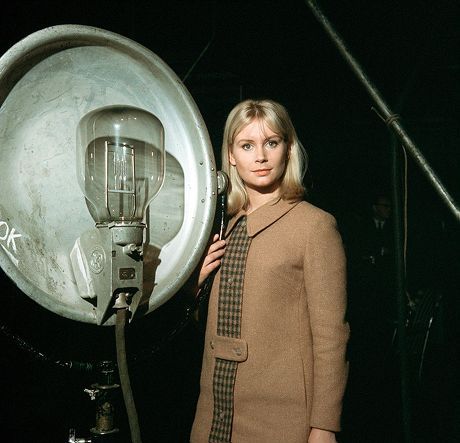
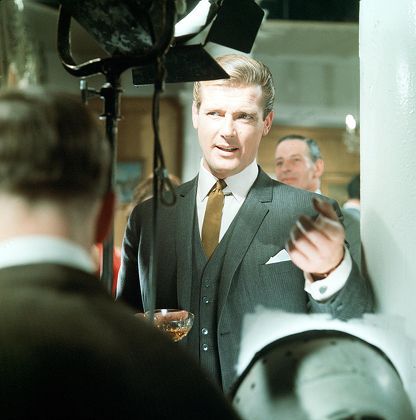

The Saint: The Russian Prisoner (5.3, ITC, 1966)
"This is not a joke! I am very angry."
"Well, you could have fooled me."
"I warn you! If any of our diplomatically immune guests press charges..."
"You'll put me in jail?"
"With the greatest of pleasure."
#the saint#the russian prisoner#itc#1966#leslie charteris#john llewellyn moxey#harry w. junkin#roger moore#penelope horner#joseph f��rst#guy deghy#yootha joyce#godfrey quigley#anthony booth#robert crewdson#sandor elès#raymond adamson#alexis chesnakov#william buck#perhaps it's a reflection on the longevity of this series or its popularity with actors but (Yootha aside) pretty much everyone#in the cast had made Saint appearances before‚ many of them more than once (and Adamson and Fürst had actually appeared together in#2.11 and Fürst and Deghy in 2.27!). After two original scripts we're back to an actual Charteris adaptation‚ from a short story by the same#name. it's an educated guess‚ but given the wealth of bts photos available and some other small clues i suspect this may have been the#first colour episode to go into production. it's a fun one too! Simon gets to have a lot of fun playing adventurer in a cold war set up#and has some killer lines and moments (including a flippant attempt at passing himself off as a Swiss naval commander). Deghy's inspector#kleinhaus is in fact a returning character (from all the way back in 1.5 The Loaded Tourist‚ making this surely the longest gap in the#series between a character's appearances) altho he's much less trusting of Simon here (what happened in those intervening years..)#still it's a nice bit of continuity. lovely lovely Sandor Elès had played a very similar character in a previous ep as a hotel receptionist#but unless he was transferred from Paris to Geneva they aren't the same character..
7 notes
·
View notes
Text




The Saint: The Loaded Tourist (1.5, ITC, 1962)
"I assure you, I never set eyes on Fillipo Ravenna in all my life until I bent over his dead body."
"Then why all this interest?"
"Merely because the frailties of human nature intrigue me."
"It's a pretty evasive answer."
"It was a pretty indiscreet question, Mr. Templar."
#the saint#the loaded tourist#leslie charteris#richard harris#Jeremy Summers#roger moore#barbara bates#edward evans#guy deghy#joseph cuby#norman florence#michael rittermann#john dearth#andrew sachs#raymond ray#david cargill#john gray#itc#1962#simon involves himself with a young man whose father is murdered in a robbery gone wrong; young Joseph Cuby made a career in brash young#foreigners who attached themselves to ITC heroes‚ playing similar parts in eps of Man of the World‚ Danger Man and Interpol Calling before#promptly retiring at the end of the decade. helping Simon is an unusually (for this show) friendly policeman: Guy Deghy is a highlight#here as the amiable Swiss detective who seems to trust Simon implicitly. we also get a smattering of Saint background; Simon is seemingly#fluent in French (at least he picks up a Swiss newspaper without any concern) and for the first time (i think?) he carries his own gun#simpler times‚ when you could just bring a pistol with you on holiday. his attempt at an Italian accent however is dreadul (whether this is#meant to be a failing of Simon's or simply a weakness of Moore's is unclear). no location work in Switzerland but there is one#backdrop used which is truly impressive and a credit to the set designers (it even appears to have actual electric lights for the little#buildings!)
2 notes
·
View notes
Photo







Danger Tomorrow (1960)
“It’s funny, when I married you I… I had a hazy idea that being a doctors wife would involve tea and muffins with the vicar… joining the Mother’s Union, generally backing you up socially!”
“Save all that for Harley Street.”
“Now I think a laboratory assistant would be more useful.”
“But not nearly so decorative…”
#danger tomorrow#1960#british cinema#crime film#second feature#b movie#robert urquhart#zena walker#rupert davies#annabel maule#lisa daniely#russell waters#guy deghy#terry bishop#films i done watched
6 notes
·
View notes